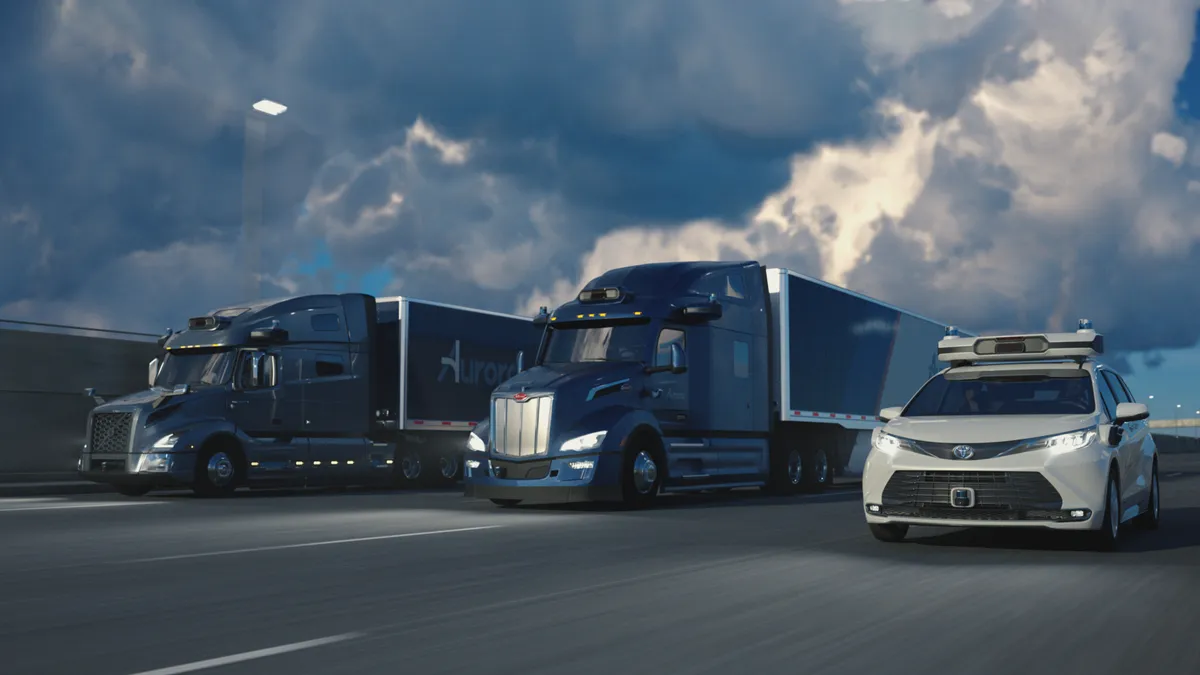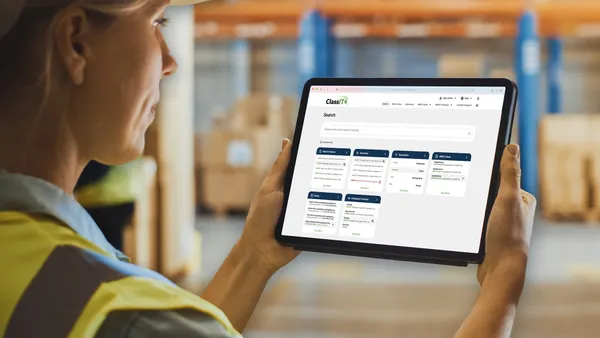Dive Brief:
- Aurora Innovation, one of the startups pushing for autonomous truck commercialization, postponed the launch of its self-driving vehicle by a year due to delays in securing tier 1 suppliers for truck hardware.
- The company was aiming for a 2023 rollout, but CEO and co-founder Chris Urmson said on an Aug. 3 earnings call that "supply chain constraints" have hindered the company's ability to scale production. The delays caused Aurora to revise its expectations for producing road-ready trucks until the first half of 2024.
- Aurora and its partner Paccar worked to secure key supplier contracts during the first half of this year, which Urmson said would be a “major point of schedule risk reduction” going forward.
Dive Insight:
Aurora has been working with partner Paccar to retrofit trucks with the startup’s self-driving technology platform and sensors. The retrofitted trucks have been used in multiple Aurora pilot programs.
Before the autonomous truck's commercial launch however, Aurora and Paccar aim to build new trucks that are produced with the startup's self-driving platform and sensors as part of the original hardware. To do so, Paccar has had to secure new tier 1 suppliers for needed components, a process that has proved more difficult than anticipated.
"As strong as the collaboration progress has been these programs are not immune to the industry challenges we continue to see," Urmson said on the call.
The constraints have slowed down Aurora's ability to scale production of its original autonomous trucks. While it plans to roll out approximately 20 trucks at launch, the startup hopes to later produce hundreds or thousands of vehicles, and "want[s] the systems in place to have consistent access to the parts that we need," said company representative Jake Martin.
Aurora did not specify what types of specific components it and Paccar recently forged supplier deals for, but Martin noted that when it comes to "items within our control," the company remains on track with its initial timeline. The startup remains committed to completing the features of its Aurora Driver software by the end of the first quarter of 2023.
Others in the sector have faced similar supply struggles as companies vie for hardware suppliers and components to retrofit vehicles and produce purpose-built autonomous trucks.
Embark Trucks faced questions on the issue during its Q2 earnings call on Thursday, to which CEO and co-founder Alex Rodrigues noted that the company’s engineering team “our fair shares of suppliers that had trouble over the last couple of quarters.”
Competitor TuSimple, which has partnered with manufacturer Navistar to produce its autonomous trucks, announced in May that they would postpone the target launch of their fully integrated, autonomous vehicles to 2025. The startup blamed the delay on "unprecedented global supply-based challenges," co-founder and CEO Xiaodi Hou said on a Q1 2022 earnings call.
"The things that we cannot control in the world is that the supply shortage on [building materials]," Hou said on the call.














